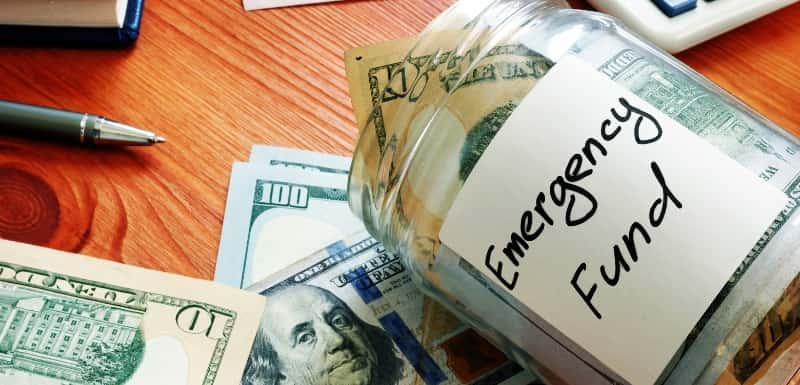Emergency Fund: What Is It, Why and How Much of It Should You Have?

In 2023-24, many IT companies and start-ups laid off many employees. The IT companies had to lay off people as the demand or discretionary spending pickup in their major market, i.e. the US, was not as strong as expected. The start-ups had to lay off people as they were not able to raise subsequent round(s) of funding due to the funding winter. In both scenarios, people who lost jobs were left in the lurch. As the IT and start-up sectors were going through a soft patch, it was difficult for these people to either get new jobs or at the same/better pay package.
During such times, an emergency fund can come to the rescue and give breathing space to wait for the right job opportunity. In this article, we will understand what an emergency fund is, why and how much of it you should have.
What Is an Emergency Fund?
An emergency fund helps tide over unexpected and unplanned financial emergencies or contingencies. For example, if a person loses a job or is laid off, the emergency fund can help sustain the family’s monthly expenses until the person finds a new job and settle into it.
Similarly, an emergency fund can be helpful in scenarios like when:
- Salary is delayed,
- Salary is cut,
- Medical emergency,
- A self-employed person loses a major client,
- A business person is facing a lean season or a temporary slump in the business, etc.
With an emergency fund, you can sail through the temporary difficult phase without going off track in your financial planning journey. Along with meeting your monthly expenses, an emergency fund can help you pay your EMI(s), insurance premiums, continue your SIPs, etc.
How Much Should Be Your Emergency Fund?
The amount to be maintained in an emergency fund may range from 3 to 12 months of expenses. The amount depends on a number of factors and may vary for a salaried, self-employed, and business person.
- Are you a well-settled salaried person working in a well-established company in a well-established sector? If yes, an emergency fund with three months of expenses may suffice.
- Are you a salaried person whose survival in the company depends from project to project? Or is your company not doing well financially and your salary has been delayed more than once in the recent past? Or are you working in an industry that is not doing well financially (for example, airlines)? In such scenarios, an emergency fund with 6 to 9 months of expenses may be required.
- Are you a self-employed person whose monthly expenses are fixed but monthly income varies depending on the amount of work that client(s) give you? In such a scenario, an emergency fund with 6 to 9 months of expenses may be required.
- Are you a business person whose monthly income is seasonal? For example, the monsoon months are a lean season for a travel operator. Similarly, a school books and stationary shopkeeper may see peak season before the schools open in June, and the remaining year may see average business. In such scenarios, an emergency fund with 6 to 12 months expenses may be planned.
Calculate the emergency fund amount by multiplying the monthly expenses by the number of months for which the fund is required. For monthly spends take into consider regular living expenses, EMIs, insurance premiums, SIPs, regular medical expenses, etc.
How to Set up an Emergency Fund?
Now that you know the amount you require in your emergency fund, the next step is to build it. Evaluate your cash flows to check how much you can set aside monthly for the emergency fund. Based on the emergency fund amount required and the amount you can set aside monthly, calculate the number of months it will require to build the fund.
For example, your monthly expenses are Rs. 40,000, and you want to build an emergency fund with three months of expenses. In this case, your emergency fund amount will be Rs. 1,20,000. If you can set aside Rs. 10,000 per month, it will take you 12 months to build the emergency fund. You can start a recurring deposit with a monthly contribution of Rs. 10,000 for a tenure of 12 months. At the end of 12 months, you will be ready with your emergency fund of Rs. 1,20,000.
Similar to starting a recurring deposit, you can also start a systematic investment plan (SIP) in a liquid fund to build an emergency fund.
Where Should You Maintain the Emergency Fund?
Once you have built an emergency fund, you can maintain it in either a savings account or a liquid fund. If you are keeping the emergency fund money in a savings account, it should be a separate account from the one where you keep money for your regular expenses. A savings account provides instant liquidity as you can withdraw cash from an ATM or do a fund transfer through UPI, IMPS, NEFT, RTGS, etc.
The other option is to maintain the emergency fund amount in a liquid mutual fund. AMCs offer the Instant Access Facility (IAF) with liquid funds. Under this facility, the redemption amount is transferred to the unitholder’s bank account instantly through IMPS. However, there may are some withdrawal limits on this feature. For example, in a day, a unitholder may be allowed to redeem up to 90% of the current value of folio units or Rs. 50,000, whichever is lower.
Regular Review of an Emergency Fund
Whenever the need arises to dip into the emergency fund, you may do so. But make sure you replenish the fund as soon as possible. With time, your monthly expenses will increase due to the impact of inflation. Hence, you must review the amount to be maintained in the emergency fund from time to time.
For example, when you started maintaining the emergency fund for the first time, your monthly expenses were Rs. 50,000. In that case, for three months of expenses, the emergency fund required will be Rs. 1,50,000. Suppose, five years later, your monthly expenses have increased to Rs. 70,000. In such a scenario, for three months of expenses, the emergency fund required will be Rs. 2,10,000.
An Emergency Fund Can Give You Peace of Mind
Life is very unpredictable. You have no control over financial emergencies in terms of when and how they will arise and the amount required to mitigate them. However, you can be financially prepared to mitigate it with an emergency fund. While you cannot prevent a financial emergency, an emergency fund can cushion its financial impact on you. Hence, an emergency fund can provide you the much-needed peace of mind against financial emergencies.
Your Investing Experts
Relevant Articles
Army Day Special: Why Investment Planning Matters More Than Ever for Armed Forces Personnel
They serve the nation with discipline and sacrifice, often across unpredictable locations and life stages. On Army Day, we reflect on why thoughtful, long-term investing is just as critical to securing their future beyond service.
Understanding the Financial Planning Pyramid: Building Your Finances the Right Way
Most people juggle several financial goals at once, an emergency fund, retirement planning, a child’s education, or even short-term lifestyle goals like travel. Without a proper framework, it becomes difficult to decide what to tackle first. The Financial Planning Pyramid offers a simple and effective way to bring structure to your financial life. It ensures that essential protections are in place before you start saving and investing for long-term wealth.
Personal Finance Ratios You Should Understand Before You Start Investing
Successful investing begins long before you pick funds or set return expectations. It starts with understanding your financial foundation, how much you earn, how much you spend, and how much is left to invest consistently. These simple but powerful personal finance ratios offer a clear view of your financial health and help you make informed, goal-aligned decisions.



